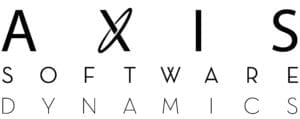In the digital age, data is ubiquitous, flowing from various sources, systems, and devices at an unprecedented rate. Every organization, regardless of its size or industry, relies heavily on data to make informed decisions, drive innovation, and stay competitive in the market. However, the abundance of data comes with its own set of challenges, particularly in maintaining data consistency, accuracy, and reliability across different platforms and departments.
The Concept of Single Source of Truth (SSOT)
Enterprises often grapple with fragmented data landscapes, where information is scattered across disparate systems, databases, and applications. This fragmentation not only hampers data accessibility but also breeds inconsistencies and discrepancies, leading to confusion, errors, and mistrust in decision-making processes. In such a scenario, achieving a “Single Source of Truth” emerges as a paramount objective for organizations seeking to harness the full potential of their data assets.
The Role of Data Integration
At the heart of this endeavor lies data integration – a process that harmonizes, consolidates, and reconciles data from diverse sources to create a unified and coherent view of information. Data integration serves as the linchpin in the quest for a Single Source of Truth, enabling organizations to break down silos, bridge disparate datasets, and establish a unified repository of trusted data.
Consolidation of Data Sources
Data integration involves aggregating and consolidating data from disparate sources, including databases, applications, cloud platforms, IoT devices, and more. By bringing together data from various silos, organizations can eliminate redundancy, minimize duplication, and create a unified repository of information.
Data Cleansing and Standardization
Inconsistent data formats, naming conventions, and quality issues are common challenges encountered in heterogeneous data environments. Data integration facilitates the cleansing, transformation, and standardization of data, ensuring uniformity and integrity across the entire dataset.
Real-time Data Synchronization
In today’s fast-paced business landscape, timeliness is of the essence. Data integration solutions enable real-time or near-real-time synchronization of data across different systems, ensuring that stakeholders have access to the most up-to-date information at all times.
Cross-functional Insights
By integrating data from multiple sources, organizations can gain holistic insights that transcend departmental boundaries. Whether it’s sales, marketing, finance, or operations, a unified view of data enables cross-functional analysis, uncovering valuable correlations, patterns, and trends that would otherwise remain hidden.
Enhanced Decision-making
A Single Source of Truth empowers decision-makers with accurate, reliable, and timely information, enabling them to make data-driven decisions with confidence. Whether it’s devising strategic plans, optimizing processes, or identifying growth opportunities, access to a unified dataset serves as a cornerstone for effective decision-making.
Compliance and Governance
Data integration plays a crucial role in ensuring compliance with regulatory requirements and industry standards. By centralizing data management and implementing robust governance mechanisms, organizations can enforce data security, privacy, and integrity measures, mitigating the risks associated with data fragmentation and inconsistency.
Conclusion
In conclusion, the journey towards a Single Source of Truth is not merely a technological endeavor but a strategic imperative for organizations seeking to thrive in today’s data-driven landscape. Data integration serves as the backbone of this journey, facilitating the seamless flow of information, breaking down data silos, and enabling a unified view of data across the entire organization. By embracing data integration as a core capability, organizations can unlock the full potential of their data assets, drive innovation, and gain a competitive edge in the digital era.
Contact us today for your custom software development needs!






